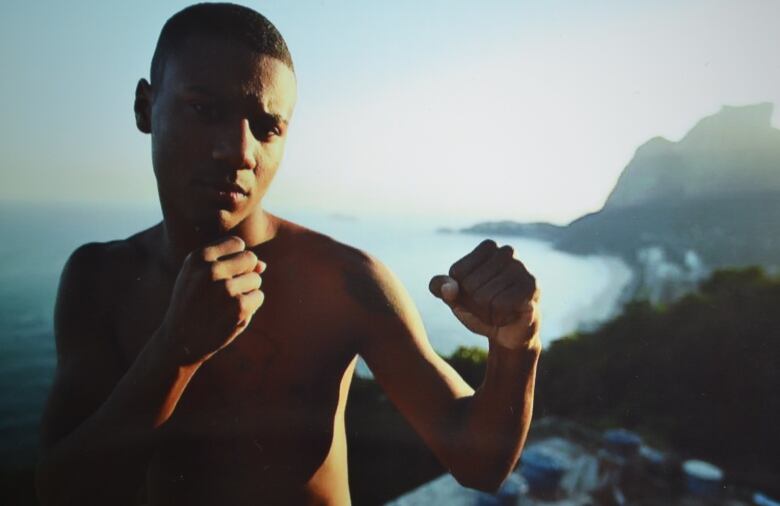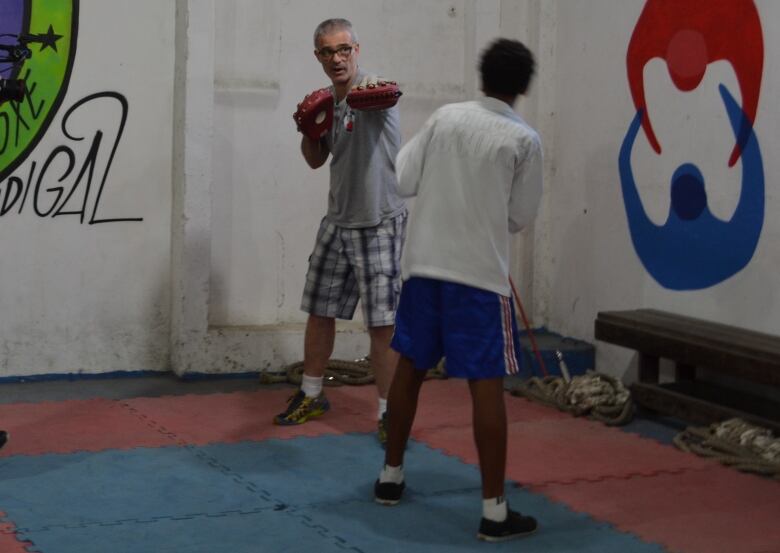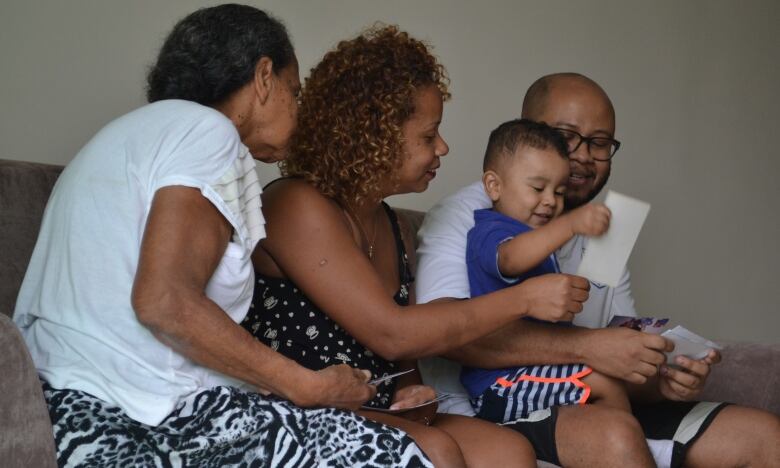Brazilian boxer from the favela loses to Colombian
Medal favourite Patrick Lourenco was the 1st person from his community to compete in the Olympics
His story speaks to the hope an Olympics can inspire, but also the realities of a Games in Rio de Janeiro that can't be ignored.
Brazilian boxer Patrick Lourenco, 23,entered the ringfor his firstbouton Saturdayas a medal favourite for the home team, fighting in the 49-kilogram weight division. But he then lost to 24-year-oldYurberjen Herney Martinezof Colombia.
Still, it's where Lourenco was born, the community he still calls home, that makes his path to the Olympics so remarkable.
- 'He's a warrior': Brazilian parents face challenges of raising babies with Zika
- FULL OLYMPIC COVERAGE
The 23-year-old is from Vidigal, one of the hundreds of shantytowns, orfavelas, that dot the hillsides above the beaches of Rio.
Five years of almost constant police presence have made Vidigal among the safer favelas in Rio, but back when Lourencowas growing up, it was a dark and desperate place ruled by drug gangs and the law of bullets.
'We were really scared'
His own father was caught up with the gangs and died in a shootout when Lourencowas only three years old.
His mother feared her son could end up following the same path.

"We were really scared," Renata Chagas said. "Every time we saw him going with dodgy characters, or doing something questionable, we would have to sit him down."
Then, at age 13, Lourencofound his way into a Vidigal boxing gym run by Raffa Giglio.
He flourished, rising in the ranks to become one of the best light flyweights in the world.
Giglio says he becamemore nervous about the Olympics than Lourenco.And even though he made sure not to miss his student's first bout as an Olympian, the coach isn't a fan of these Games.
"I love sport and boxing, but this country doesn't need an Olympics," he said. "Brazil needs health care, education, culture, sports for the kids, lots of things. I love the Olympics, but I think it's something for a First World nation, not a Third World nation."
Giglio's comments seem to reflect the prevailing mood in the favelas, home to some of Rio's most vulnerable and impoverished residents.
- How Brazil lost its way to economic stability
- MostBrazilians think Olympics will cause more harm than good
- Rio declares 'financial disaster' to finish Olympic preparations
Brazil has spent billions to host the Games at a time when the country can least afford it.
Brazil's economic downturn has trickled down to every aspect of community life. Police in Vidigal, for example, haven't been paid in weeks, and even soup kitchens are scaling back or shutting their doors.
Still, Giglio can see how a local Olympian can inspire his community.

"Patrick is an inspiration, an idol, and a role model, but it also means they have to work hard and make the most of their opportunities," he said.
'Tears of joy'
As Lourenco's family flippedthrough old photographs of a young man trying out his first boxing gloves, his grandmother chokedup.

Back at the boxing gym, there may have beendisdain for all the money spent on the Olympics, but there wasalso something exciting to consider:no athlete from Vidigal has ever competed at the Olympics, let alone come home with a medal.
"It will be one for the history books," said Giglio, hoping for a win that didn't materialize, adding that anyvictory would ignite aparty in the favelalastingmore than a week.













_(720p).jpg)


 OFFICIAL HD MUSIC VIDEO.jpg)
.jpg)



























































































